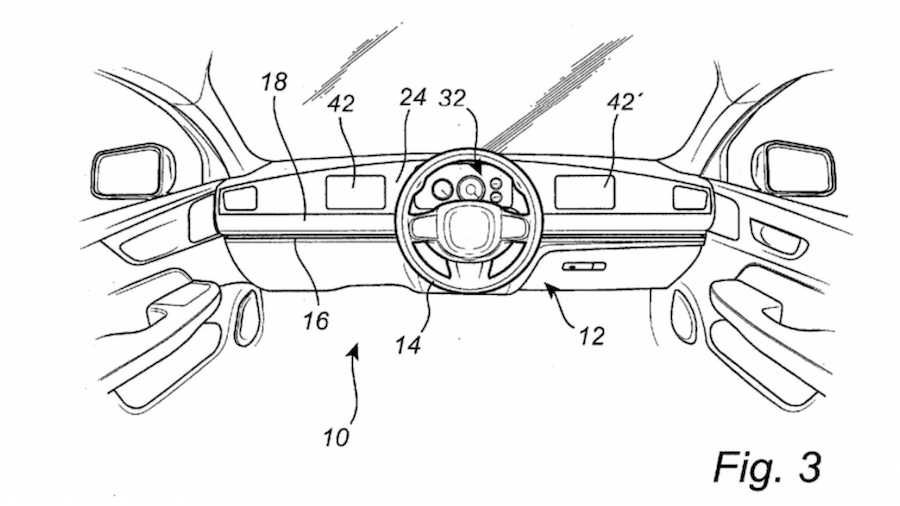Volvo Patents Steering Wheel That Slides Across A Car's Dashboard

Automakers file patents for things that never see production all the time. When you're trying to out-innovate the next guy, you try a bit of everything because you don't know what will work and what won't. This could explain Volvo's new patent application because it's an odd one – a sliding steering wheel. No, Volvo isn't rethinking the tilt-and-telescoping feature. It's a steering wheel that slides from one side of the vehicle to the other, allowing for both left- and right-hand drive.
Volvo's sliding steer-by-wire steering wheel system is designed for a highly automated – not fully automated – vehicle and allows a person to control the vehicle from either seat. The patent puts the steering wheel on a track while offering two solutions for the instrument cluster – a dash-spanning screen that sits behind the wheel or a small one that slides with the wheel. The pedals are there, though the patent describes pressure-sensitive floor panel sensors across the floor that are activated by the wheel's position that allows for brake and accelerator inputs.
Digging further into the patent reveals a centered position for the steering wheel is possible, implying a centered driver's seat or, more likely, a front bench seat. The patent also illustrates a rail system designed for the front seats and the gear selector. Such a system's usefulness is there as it wouldn't be the first vehicle to offer a sliding steering wheel. The Mercedes Unimog also features a trick steering wheel, though it's not as elegant as Volvo's idea. You can see the Unimog's system in the video below (it's not in English, but it doesn't need to be).
The idea of controlling a vehicle from either of the front seats isn't strange; however, Volvo is thinking way ahead of the game. Fully self-driving cars that require zero human input are years, if not decades, away from becoming a reality. And automakers and tech companies still have to go planet-spanning distances to make even highly automated vehicles successful for mass production. It's unlikely Volvo's trick steering wheel will arrive anytime soon.


Related News


